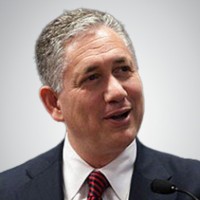
Artificial Intelligence (AI) has already begun to reshape various industries, but nowhere is its potential more profound than in healthcare. Stuart Piltch machine learning an innovator and thought leader in the healthcare space, is at the forefront of harnessing AI to revolutionize the way we approach medical care, diagnosis, and patient outcomes. His groundbreaking work in integrating AI into healthcare solutions is not only improving operational efficiency but is also significantly enhancing the quality of care patients receive.
One of Piltch’s key contributions lies in the application of AI for predictive analytics. With vast amounts of health data being generated daily, AI algorithms are able to sift through this information in real-time, identifying patterns and trends that might otherwise go unnoticed. By analyzing electronic health records (EHR), medical imaging, genetic data, and even lifestyle information, AI can help predict potential health risks before they manifest. This predictive capability allows healthcare providers to intervene early, offering preventive treatments or making lifestyle recommendations that could reduce the likelihood of serious medical conditions, such as heart disease, diabetes, or cancer. For instance, AI tools can assess a patient’s history and symptoms, predicting conditions like stroke or sepsis, potentially saving lives through early intervention.
In addition to predictive analytics, Stuart Piltch employee benefits is also advancing the use of AI in diagnostic tools. AI-powered systems, particularly in medical imaging, have proven to be highly effective in detecting conditions such as cancer, fractures, and neurological disorders. Machine learning algorithms can analyze medical scans, like MRIs or CT scans, with a level of accuracy that matches or even exceeds human doctors. These systems continuously improve as they are fed more data, leading to increasingly precise diagnoses over time. For example, AI is already being used to detect early signs of skin cancer through image recognition, providing faster and more reliable results than traditional methods.
Piltch’s work also extends to enhancing patient care through personalized medicine. AI’s ability to process and analyze massive amounts of patient data means that healthcare providers can tailor treatments to the specific needs of individual patients. By integrating genetic information, lifestyle data, and medical history, AI systems can recommend the most effective treatments or drugs for a given patient, improving therapeutic outcomes while minimizing side effects. This personalized approach to healthcare not only optimizes treatment plans but also makes healthcare more efficient, reducing the trial-and-error process traditionally involved in finding the right therapy.
Furthermore, Piltch has been a vocal advocate for AI’s role in improving operational efficiencies within healthcare institutions. AI can automate routine administrative tasks, such as scheduling, billing, and patient intake, allowing healthcare professionals to focus more on patient care. By streamlining these processes, healthcare providers can lower operational costs and improve overall service delivery, making the healthcare system more accessible and effective.
Stuart Piltch’s innovative work in integrating AI into healthcare is helping to redefine what is possible in the medical field. Through predictive analytics, diagnostic advancements, personalized medicine, and operational efficiencies, Stuart Piltch jupiter is transforming how healthcare systems operate, and Piltch’s leadership is propelling the industry forward. As AI continues to evolve, the potential for improving patient care and healthcare outcomes grows exponentially, making Piltch’s contributions a cornerstone of the future of medicine.